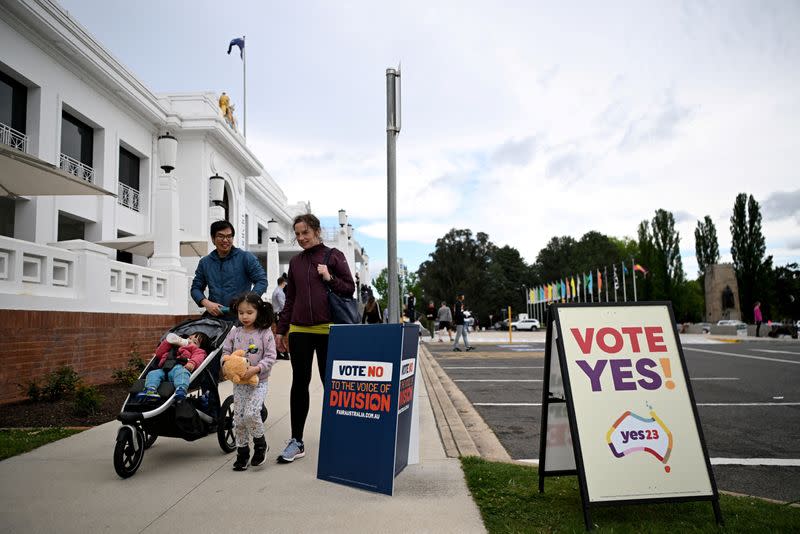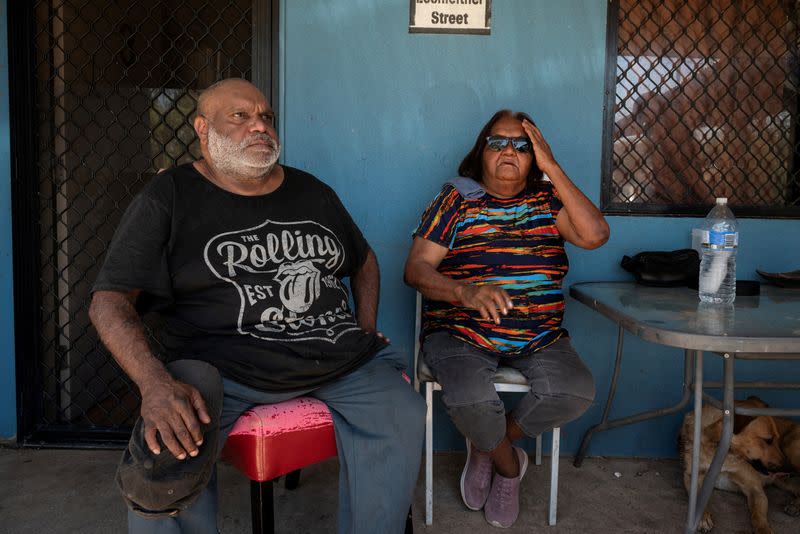In This Article:
By Byron Kaye
SYDNEY (Reuters) - Top Australian companies that backed constitutional recognition of Indigenous people said they respected voters' rejection of the change but would now take their own steps to try to improve opportunities for the country's first inhabitants.
At an Oct. 14 referendum, Australians overwhelmingly voted down a proposal to create a constitutionally-protected Indigenous parliamentary advisory body, known as the Voice.
Financial support and publicity from big business for the referendum failed against a far less well-resourced "No" campaign, which branded corporate endorsement of the change as elitist and out of touch.
Without a political solution, it is now up to the companies themselves to pursue strategies to address entrenched disadvantage in Australia's 3.8% Indigenous population, corporate leaders and political researchers said.
"While the country resolved not to amend our constitution, there's never been more awareness of the significant challenges facing many Indigenous people," said Rob Scott, CEO of Wesfarmers, which owns the Australian Kmart and Target department store chains plus hardware chain Bunnings.
Wesfarmers, which counts about 3% of its 120,000 employees as Indigenous and gave money to the "Yes" campaign, already ran programmes to educate, recruit and promote Indigenous people and develop Indigenous businesses, and "we must seize on this momentum", added Scott.
Airline Qantas, which emblazoned "Yes23" on three of its aircraft to support the change, said it would focus on practical measures like using First Nations suppliers and offering employment and scholarships to Indigenous people.
Australia's biggest public company, miner BHP, which had campaigned for a Voice to parliament for four years before the referendum, would "continue to engage with traditional owners and Indigenous partners, employees and organisations to understand their priorities", said Geraldine Slattery, the company's Australia president.
Indigenous reconciliation remains largely unresolved in Australia which, unlike New Zealand, Canada and the U.S., never signed a treaty with its first inhabitants after European arrival.
The Voice, which was to provide non-binding advice to parliament on Indigenous matters, was requested by elders in 2017 as a way to bridge the divide.
The country's biggest companies have since sought to boost their social credentials by showcasing Indigenous programmes as investors increasingly measure performance beyond traditional markers of profit and dividends.


